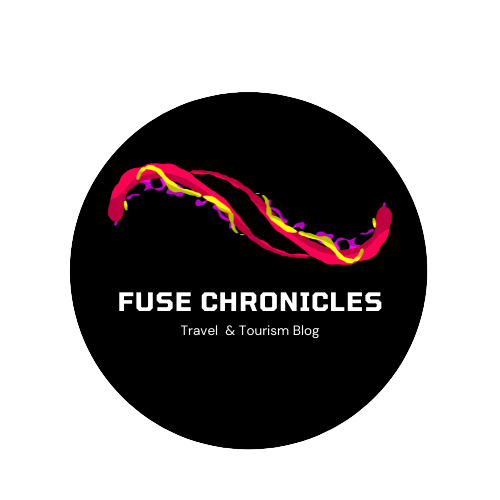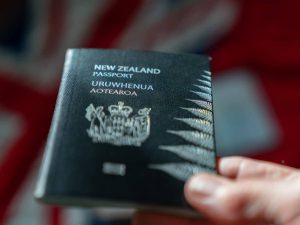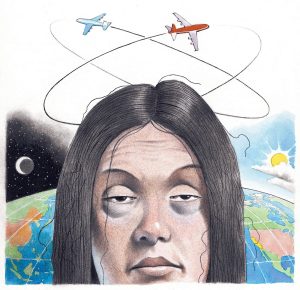The Netherlands
When many people think about international travels for work, they only think specific destinations such as the United States, Canada, Australia and Dubai. Very few people ever consider eking out a living by securing a Netherland work visa in order to maximize their earnings in this country.
Related article: Visa interview questions that will ensure you never get rejected again
The Netherlands is one of the best destinations to travel to, whether your intent is starting a business or joining the work force of an international company. Compared to other popular destinations, it’s known for freer laws and more favorable living conditions.
According to a survey carried out by HSBC Expat explorer in 2018, the Netherlands was rated as the best place to live using key performance indices such as economic productivity, strength of educational institutions, English proficiency and green revolution.
In this article, I will take you through everything you need to know about securing your Netherland work visa towards moving to this country as a skilled professional, whether you are looking to move to the Netherlands after securing work with a company from overseas or planning to relocate to start a business here.
Netherland Work Visa
Before applying for the Netherlands work visa, people who are not citizens of Switzerland or from countries outside the European economic area (EEA) are required to obtain work permits before they can start work in the Netherlands. Work permits in this country are classed in 2 types;
- The employment permit (TWV)
- And the single permit (also known as a combined residence and work permit)
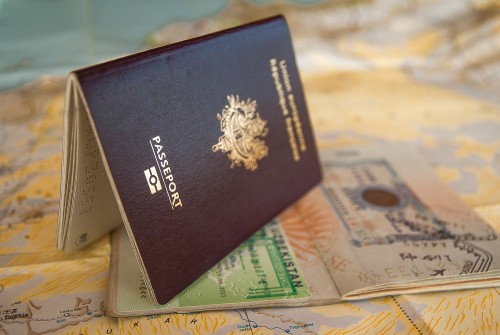
The Netherlands Work Visa Employment Permit Requirement For Foreign Workers Outside The EEA
Companies in the Netherlands looking to hire foreign workers from countries outside the European economic area and Switzerland are required to secure an employment permit (TWV) on behalf of employees joining their workforce from other countries.
The employment permit is for foreign workers who are being offered work in the Netherlands that can be completed in a duration of time less than 3 months. If the intended work detail is going to be completed in a timeframe longer than 3 months, the single permit is usually sought after.
There are strict conditions that have to be met before the Dutch employment agency, which is saddled with the responsibility of issuing employment permits to companies for their new foreign recruits, will issue this work authorization document.

Conditions such as making sure that there are no qualified professionals to fill in open corporate positions within the Netherlands before opening up these vacancies to the international community. On less of course it is a case of a special category of work in which this condition can be waived.
In situations where individuals are recruited through an intermediary company such as a human resource firm, an employment permit (TWV) will have to be applied for on behalf of the employee. When this is granted, a copy of the new recruits ID and his employment permit will have to be sent to the Netherlands sponsor (hiring company).
The above procedure is to make sure that due process has been followed as well as making sure that the company hiring foreign workers has an up to date record of the staff in its payroll.

Dutch Work Visa For Professionals Working In The Netherlands For Periods Longer Than 90 Days
Unlike the employment permit, foreigners from outside the EEA and Switzerland are mandated to apply for a single permit themselves, when coming into the Netherlands to work for a period greater than 3 months. This application is lodged with the immigration and naturalization services (IND).
The single permit is quite different from the employment permit, because it offers full residency as well as an authorization to work in the country for a period bigger than 3 months to its holder. While an employment permit is processed by a Netherland sponsoring company, the single permit is applied for by individual applicants
Although, there are unique set of circumstances in which an employer can assist a new recruit looking to come into Netherlands for work to apply for a single permit (GVVA) with the immigration and naturalization services (IND), this depends on how difficult it must have been for the hiring company to find the right candidate to fill an open position.

Work Permit Requirement For Dutch, EEA Nationals And Other Special Conditions
People from the Netherlands and the European economic area are not required to apply for a work permit as they are free to hold different types of jobs as well as plethora of positions in different companies. Special conditions exist in which foreign nationals from outside the EEA and Switzerland can also enjoy these benefits.
For instance, when a foreign national gets married to a Dutch, a Swiss or someone from the European economic area, this special condition qualifies a non-EEA member to be eligible to work without a work permit.
When A Netherlands Work Visa Is Required, But Not A Work Permit
There are certain groups of foreign nationals from outside the EEA who are exempt from applying for a work permit. However, this group of individuals are required to apply for a resident permit before putting in a Netherland work visa application.
The group covered by this rule include;
- People with the phrase ‘arbeid is vrij toegestaan’ stenciled on their residence permit. This phrase means; ‘permitted to work’ in English
- Foreign nationals with resident permit that contains the phrase ‘arbeid als zelfstandige’. Which translates to ‘self-employed’, this are usually businessmen or traders who own their businesses.

- Foreigners from other countries outside the EEA, who are traveling to the Netherlands with intent on starting their own businesses. This usually have the word ‘startup’ stenciled on their residence permit
- Exceptional migrants who are highly skilled in their areas of expertise. This are seen to have the potential to increase the knowledge base of key sectors in the country
- Foreign nationals who live abroad, but plying their trade in the Netherlands on a short-term basis. An example of this is an individual living in Mexico, but attending a business meeting in the Netherlands or an Indian engineer in the country to fix a space 3D printer purchased from an Indian manufacturer.
The Netherlands Work Visa Sponsor List
Different companies sponsoring foreign nationals to work in the Netherlands have different requirements as well as offer different levels of sponsorship. Companies like Picnic, offer a relocation package that sees air fare paid for new recruits joining the company from overseas.
They also offer a full work visa sponsorship and one month accommodation to help the new worker settle in quicker. Other companies that offer work visa sponsorship to non-EEA citizens can be found in the table below;
| Company name | Category of Visa sponsorship offered |
| Picnic | Work visa |
| Zivver | Work visa |
| Coolblue | Work permit and visa |
| Vanmoof | Work visa |
| Wonderkind | Work visa |
| Polarsteps | Work visa |
| Virtuagym | Work visa |
| Convious | Work visa |
| Strm privacy | Work visa |
| Bunq | Work visa |
| Silverflow | Work visa |
| Wetransfer | Work visa |
For more Netherlands work visa sponsorship companies hiring foreign nationals you can visa the Dutch immigration and naturalization archive of registered companies.
Types Of Netherlands Work Visa And Their Requirements Before An Application Can Be Submitted
There are different subcategories of the Netherlands work visa that different applicants can apply for depending on each individual’s unique circumstance. These subcategories come with different conditions and guidelines that must be adhered to or risk being denied.
Below are the different types of Netherland work visa and the criteria in which they can be granted;

Netherland Regular Paid Work Visa
This is a work visa for employees entering the country to take up regular jobs, they are usually known as labor migrants.
To apply for this work visa subcategory;
- An employment contract that shows the applicant has been offered a job by a Dutch company is to be submitted as a supporting document
- The applicant will need to prove that the sponsor is willing to pay the minimum salary which is a standard for working class immigrants above the age of 23
- The Dutch employer that seeks the services of the foreign national is mandated to prove that the open position cannot be filled by citizens of the Netherlands or other European economic area countries.

Netherlands Seasonal Labor Work Visa
This work visa subclass is for foreign migrants who plan on entering the Netherlands for seasonal work, usually those to be filled in the agricultural sector. The Dutch seasonal work visa grants its beneficiary a stay of 24 weeks.
Just like the regular paid work visa, the seasonal work visa has specific requirements that must be met before it is granted. They are;
- An employment contract that shows that the applicant has been duly employed or will be employed at a specified time in the future is required
- Whether with the assistance of a Dutch employer or by personal effort, a single permit has to be obtained before this visa can be applied for
- The Dutch company that seeks the applicant’s services must be willing to structure salary payments to be at minimum wage levels.

Netherlands Intra Corporate Transfer Work Visa
The applicant might be working for a subsidiary of a Dutch company overseas and seeks a transfer of service to either a head office or branch located in the Netherlands. To be able to get this done, an intra corporate work visa is required.
To secure this visa;
- The applicant mustn’t be a citizen of any of the European economic area country
- At the time of application, it is paramount that the applicant must be resident in a country outside the European union
- The applicant must be a specialist or trainee offering his/her expertise at a managerial level
- Before transferring to the branch located in the Netherlands, the beneficiary of this visa must be employed by the company in his/her home country for a period not less than 3 months
- The applicant must be duly qualified and possess the prerequisite experience for the vacant position advertised
- The salary structure must be arranged in such a way that the applicant’s remuneration meets the standard set for a highly skilled migrant

- As a potential beneficiary of this work visa, the applicant will be required to prove that he/she plans on residing in the Netherlands for the period in which they will be employed by a Dutch employer
- A rich transactional relationship has to exist between the applicant’s current employer in his/her home country and the branch in the Netherlands in which the visa recipient is transferring to.
- It is paramount that no transfer of employment should have taken place prior to the applicant’s transfer visa is processed
- The subsidiary or branch being transferred to in the Netherland must not have been in violation of the aliens employment act in the last 5 years, particularly when it has to do with payment of wage taxes or premium related to employment insurance
- Employees that enter the Netherlands to take advantage of trainee programs must ensure that their visa application is not done under the normal employee status, but instead should apply under the specific trainee program that best suits their situation

Dutch Highly Skilled Immigrant Visa
This category of workers are known as knowledge workers. They are overly skilled workers who have a perceived value to vastly improve the knowledge base in key sectors in the Netherlands economy by virtue of their professional contributions.
The level of income earned due to contribution to a company’s’ productivity classes an employee as a highly skilled immigrant. A minimum of €3,299 has to be earned by individuals in this category under the age of 30 and for those above this age grade, a minimum of €4,500 has to be earned.
There are conditions that must be met before an applicant can be classed under this subcategory;
- An employment contract has to be obtained from a Dutch employer or research institute.
- To employ foreign nationals under this subclass, the employer needs to be a sponsor recognized by the immigrations and naturalization services (IND)
- Employment contracts offered to research scientist has to be signed on behalf of the employing institute
- Contracts offered to research scientist must include the job description and code which is in line with the university job classification system

- Doctors receiving training under this subclass have to do so in institutes that have been set up by either the medical specialist registration committee (MSRC), social medicine physician committee (SGRC), general practitioner and nursing home physicians registration committee (HVRC)
- Doctors who seek to get more training in the Netherlands must be registered with an individual healthcare professional body. What is otherwise called a BIG-register
European Blue Card
A non-EU citizen might seek to work and live in any country within the European union, to do this a European blue card which is a work permit is required. However, there are some notable exceptions, countries such as Denmark, Ireland and the United Kingdom do not accept this document.
To use a European blue card issued from a different EU country in the Netherlands, an applicant will require a Dutch work visa as well as a work permit. There are conditions that needs to be met for this to occur;
- The applicant must have received an employment contract from a Dutch employer which is valid for at least 12 months
- The applicant must have spent at least 3 years in a program that eventually led to securing a higher education diploma
- The Dutch organization for internationalization in education (Nuffic) will have to evaluate all higher education certificate used in the application process

- A proof that shows the applicant is of the skill standard to meet the working requirement for a chosen profession must be submitted
- Each European blue card has a fixed wage requirement which its holder has to earn per month to be eligible to get issued, this usually not lower than €5,272
- The Dutch employer seeking the services of the applicant must not have been in violation of the aliens employment act in the last 5 years, particularly when it has to do with payment of wage taxes or premium related to employment insurance
Orientation Year For Highly Educated Persons
Certain Netherlands work visa applicants who completed their studies within the country (Netherlands), but have their study visa expiring soon or probably expired, are able to apply for an extension to secure paid employment.
This category of applicants can apply for a Netherland work visa to get proper orientation by working in the country in the ensuing 3 years after their study program. To be qualified for this orientation year, one or more of the below criteria has to be met;
- The applicant must be a graduate of a Netherland BA/MA program from an accredited institution
- Must be a student in a postgraduate program, in which at least 1 year has to have been completed
- The applicant must have had a prior Netherlands visa for scientific research
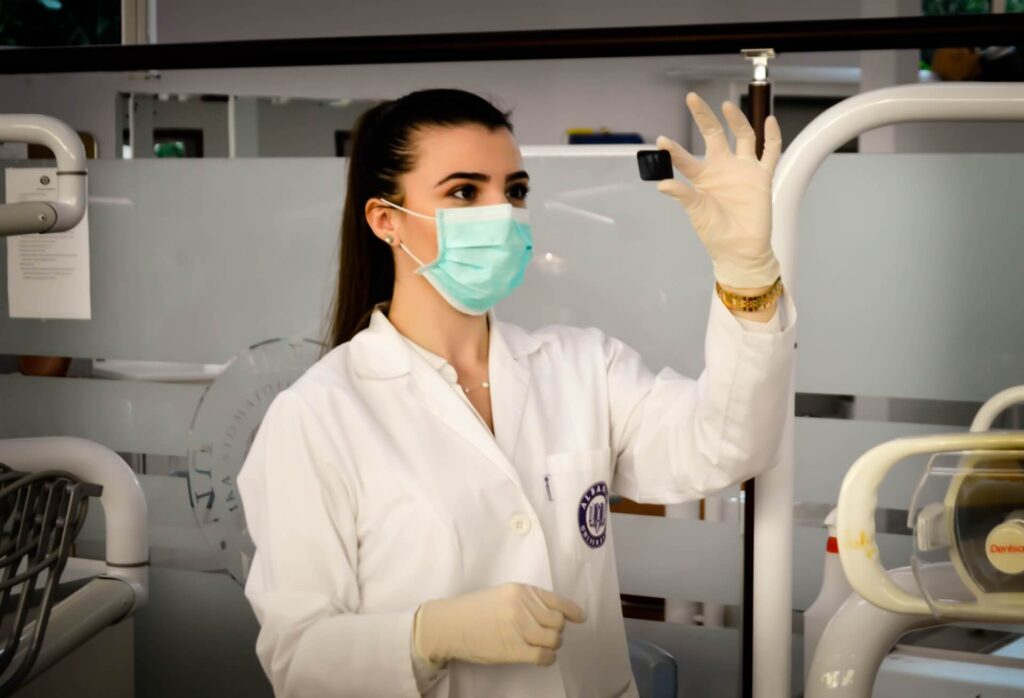
- Must be a recipient of an MA degree in a masters course from an Erasmus Mundus institution
- Being a beneficiary of the ministerial decree by completing a higher education program from a designated institution
- Completing a program favored by the development cooperation policy of the ministry of foreign affairs for the Netherlands
- Be a recipient of a certificate from an institution in the Netherlands under the cultural policy act framework
- Having attended a designated university or higher institution abroad in which an MA or post graduate degree was obtained
European Union Researcher Directive 2016/801
Applicants who worked as researchers in other European union member countries can migrate to the Netherlands if;
- They meet the requirements to be admitted into a doctorate degree program by showing they have sufficient higher education background
- A Dutch research institute recognized by the immigration and naturalization services (IND) as the location for a research collaboration
- When a Netherlands institution has approved a research exercise to be carried out by an applicant or a team of applicants
- The Netherlands work visa applicant has received a employment contract or host agreement from a research institute
- The work visa seeker is going to receive wages from his/her Dutch employer higher than the statutory amount

The Netherlands Work Visa Eligibility Conditions For Self Employed Individuals, Freelancers And Entrepreneurs
A single permit is what’s required if a foreign national from a country outside the European economic area plans on opening a business or working as a freelancer in the Netherlands. This is not because a work permit is needed, but due to the fact that a resident permit is required. However, the conditions and guidelines for a Dutch work visa for self employed individuals are very strict compared to other visa types.
For self-employed work visa applicants, it must be proven that the intended product or service to be offered by the business is geared towards improving the quality of life for citizens of the country or directly boosting the economy. If this is the case, applicants could be eligible for a startup visa.
Applying For A Netherlands Work Visa
The Dutch work visa application has to be submitted in person to the Netherlands consular representative in the applicant’s country, whether this be in an embassy or high commission. If none (embassy or high commission) exist in the new recruit’s country, then a submission has to be done in the Netherlands consular service office in a neighboring country.
An appointment has to be made before the work visa application can be handed in. The visa application process for workers looking to migrate to the Netherlands is rather confusing and tedious at best, so most applicants usually seek the services of a professional to avoid errors or mistakes.
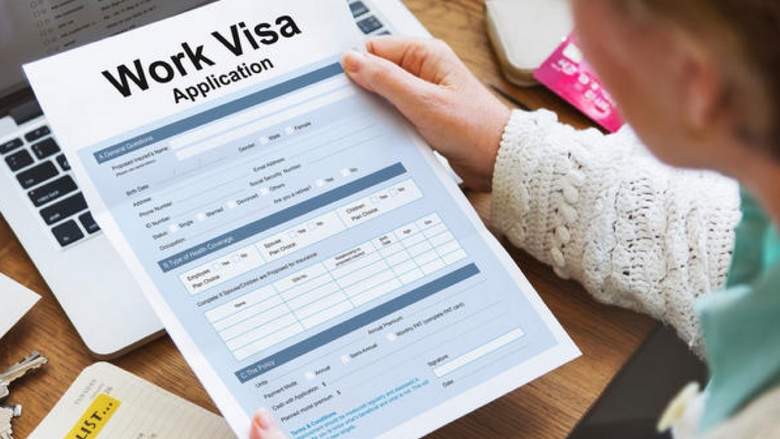
The Netherlands work visa doubles as a residence permit and a permissible document to get employed in the country for a period of 3 months and above. It is usually referred to as a single permit that has dual functions. There are different subclasses of Dutch work visa as was highlighted above.
Before an applicant can be issued a work visa, the type of employment he/she is entering the country to take up has to be revealed. It’s also worth noting that different types of open positions require different Dutch resident permit. However, there are generic requirements that are applicable to all work visa applications.
Just before an applicant can apply for the Netherlands work visa, he/she must first find companies advertising open positions to be filled by foreign nationals. This of course depends on one’s field of expertise. Certain conditions need to be met before this visa can be granted to applicants for different categories.

Some Netherland work visa subclasses such as the startup visa grants self-employed applicants the opportunity to apply for their Dutch work visa at the point of entry into the Netherlands. However, some key criteria have to be met to be a beneficiary of this visa program.
If a work visa applicant gets accepted for a job that can be filled by local labor, the immigration and naturalization service (IND) which is tasked with approving resident and work permits (single permit) for foreign workers staying for a period over 90 days, will turn down such applications. It is thus necessary to be mindful of such minor detail.
When job seekers from outside the European economic area and Switzerland get accepted to join the workforce of a company in the Netherlands, depending on the duration of the intended work, the recruiting company becomes the job seekers’ sponsor and is going to be in charge of applying for the new recruit’s employment permit.
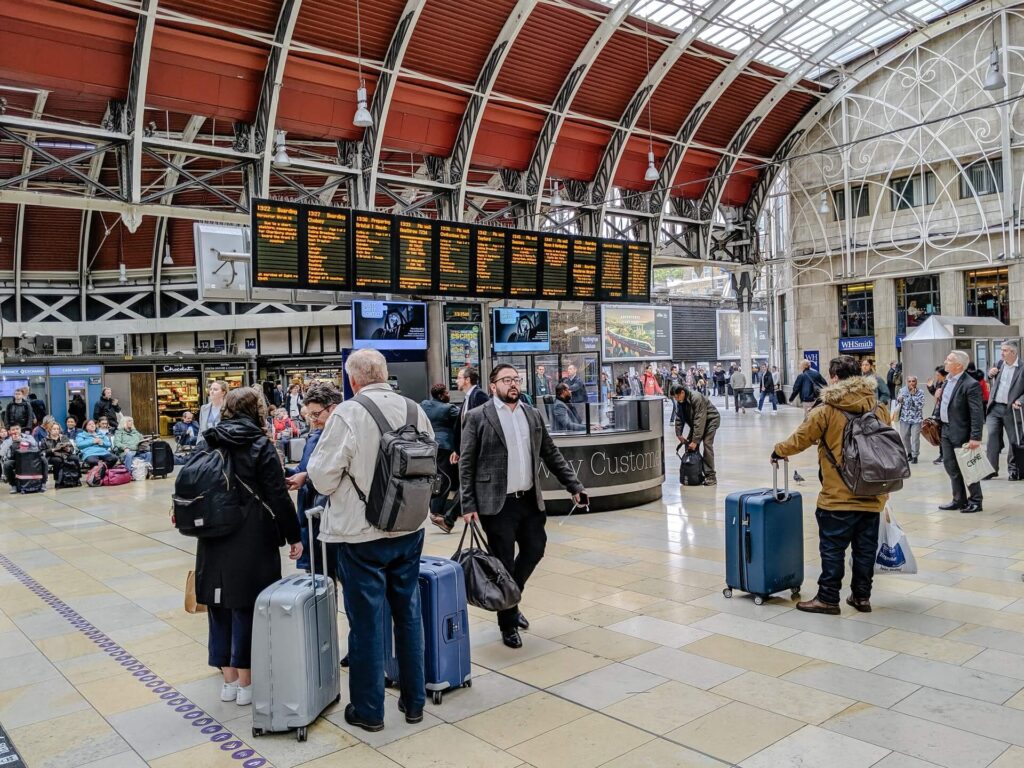
This of course is for applicants looking to work in the country for a period less than 90 days. The Netherlands sponsor submits the work permit application to the Dutch employment agency for approval. This is usually different for job seekers looking to work in the Netherlands for a period longer than 90 days.
Intending foreign national job seekers looking to live and work in the Netherlands for a timeframe bigger than 3 months, will have to apply for a single permit, which is designed to confer on them full residency and a work permit. However, they will have to apply to the immigration and naturalization service (IND) for this permit. This must be done themselves, without the assistance of a hiring company.
Upon receiving a permit from a hiring company (employment permit) or the immigration and naturalization service (single permit), the next step is to apply for a Netherlands work visa. If the applicant’s sponsor is taking care of all expenses, then there will be no need to show a proof of funds.
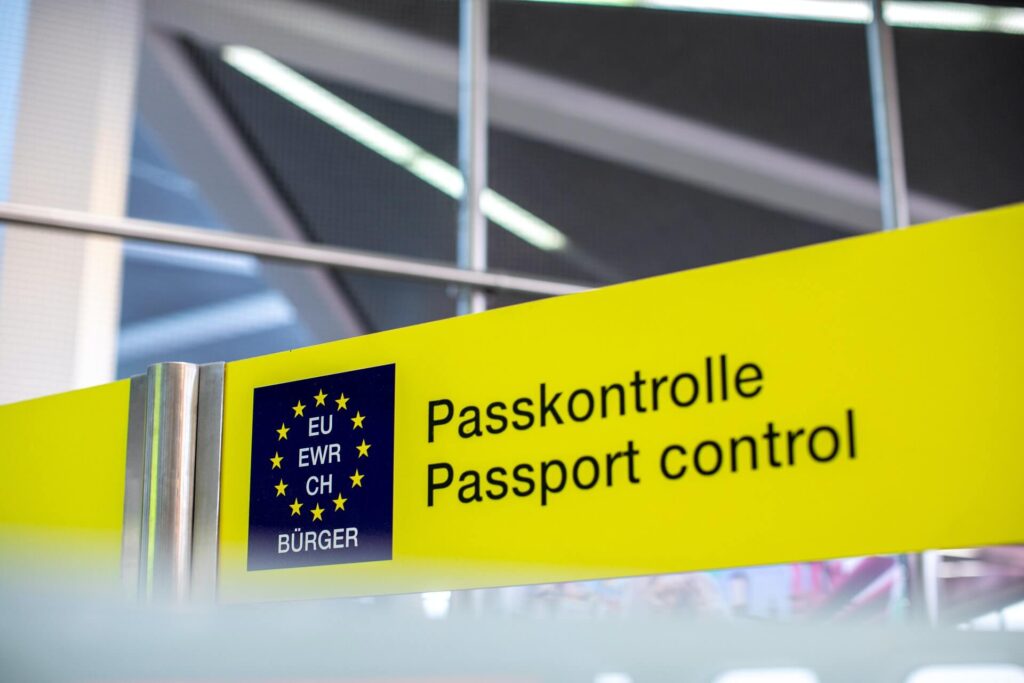
If the Netherlands company hiring the applicant is not footing the cost of living expenses, then the applicant will be required to show a proof of sufficient funds as part of the supporting documents to be submitted with a visa application.
Note: Companions traveling with the primary applicant, such as a partner or children are required to fill out individual visa applications to enter the Netherlands.
Dutch Citizen Service Number
5 days upon entering the Netherlands, the new recruit for the Dutch company will have to make an appearance at the local city office, where a Dutch citizen service number will be given to each new employee.
This is a very important step, as without the Dutch citizen number it is considered illegal to live in the country. This is also going to negatively affect the hiring company.

Supporting Documents Required To Apply For A Netherlands Work Visa
The supporting documents required to process a Dutch work visa for foreigners who are citizens of non-EU countries depends on the open position in which the applicant coming into the country is looking to fill. It’s also dependent on country of origin as there are different guidelines for people from different continents as well as countries.
Irrespective of the country and position to be filled, there are supporting documents that are always requested and these are;
- A valid passport
- Attested evidence that information contained in the visa application is true
- Proof of funds that shows a statement of sufficient income earnings
- Proof of employment from an employer recognized by the Dutch employment agency
- Medical certificate showing applicant is free from tuberculosis
- A background check to show a lack of a criminal record
Find below a short video designed to prep you up for your work visa interview.
Netherlands Work Visa Application Processing Time
If the application is complete and no additional supporting documentation is required, a decision is usually reached by the immigration and naturalization services (IND) in 2 weeks. However, if a resident and work permit has to be processed before a visa application, the processing time in its entirety takes 7 weeks before a decision is reached.
When An Employment Permit Is Required Instead Of A Single Permit
While looking to apply for the Netherlands work visa, it is important to be mindful that there are times when a long stay in the country might necessitate an employer to reach out to the Dutch employment agency (UWV) for an employment permit (TWV) to be approved instead of a single permit (GVVA).
These special situations include;
- Employees looking to gain entrance to the Netherlands to work for a period less than 3 months
- Individuals, usually students who are in the country for the purpose of attending a university or institution of higher learning, so hold a residence permit for this reason
- Those looking to be granted asylum in the Netherlands and are waiting for a decision to be reached on their application.
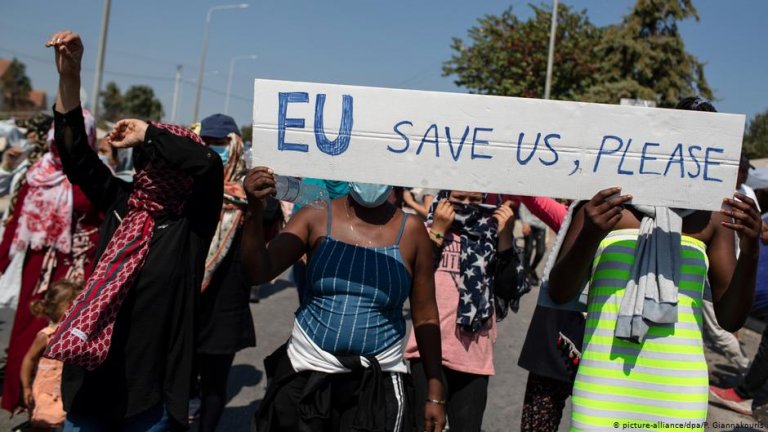
Conditions For Which Work Permits Are Granted To Non-EEA Workers
There are strict conditions that must be met before a foreign national from outside the European economic area can be hired to work in the Netherlands. Conditions such as;
- A vacant position that cannot be filled by workers from the EEA or Switzerland
- Open positions in companies that have been vacant for 5 weeks to 3 months. Which an employer is finding difficult to fill with local labor. The Dutch employment agency (UWV) reviews and decides positions that are difficult to fill
- An employer through its human resource department has tried filling vacant positions with local labor from within the European economic area, but has found this impossible to do
In any one of these cases, when an employer finds a foreign national from outside the EEA, they can apply for an employment permit (TWV) with the Dutch employment agency (UWV) or a single permit (GVVA) with the immigration and naturalization services (IND). All qualifying requirements have to be met to get the sought-after permit.

Paths Of Least Resistance To A Single Permit And An Employment Permit
Getting a single or an employment permit is usually very difficult, as an application has to endure a lot of scrutiny before it gets approved. However, there are paths of least resistance for foreigners from outside the EEA looking to get a Netherlands work visa. People that fall under this category are;
- Students planning to study in an institution of higher learning, but also plan to work no more than 16 hours per week
- Individuals looking to work as interns
- People learning on the job like trainees
- Artist whose income is way higher than the threshold ceiling
- People who work 24 weeks over a 52-week period, such as asylum seekers
- Leaders of key spiritual orders, such as imams, clerics and ministers, missionaries, nuns etc

Class Of People Required To Apply For A Single Permit
Not all applicants are required to apply for a single permit, which confers full residency and work permit on the beneficiaries. Those required to apply for a single permit are;
- Multinationals who work in the hospitality sector, particular those who work in Asian restaurants
- Educationist, usually teachers who have been internationally certified
- Religious leaders, ministers and leaders from diverse spiritual movement
- Practitioners such as those in the legal profession
- Labor migrants such those who seek regular jobs that pay minimum wage
- Interns
Class Of People Who Need To Apply For An Employment Permit Instead Of A Single Permit
Depending on the applicant’s country of immigration as well as intent while in the Netherlands, not everybody is required to apply for a single permit. Some applicants are mandated to apply for an employment permit, this is usually handled by the new recruits’ employer (Dutch sponsor).

However, in some cases the period of stay might need to be extended beyond 90 days, when this happens, either one of the employee or employer can apply for a resident permit. In a situation whereby the applicant is required to apply for an employment permit by him/herself, this can be done at the Netherlands embassy or high commission in the applicant’s country of citizenship.
The class of applicants that are required to apply for an employment permit are;
- Foreign students
- Asylum seekers
- Beneficiaries of intra company transfer
- Refugees
- Recruits on an orientation year
- Seasonal workers
- Single permit beneficiary’s family members
- Migrant laborers on a short stay visa
- Service providers across diverse sectors
- Seafarers
- Foreign nationals from Croatia

Conclusion
Getting a Netherlands work visa in itself is a daunting process. As the preparatory stages leading up to this point are quite challenging and an applicant will be required to apply for vacant positions in companies located in the country.
Before a foreign national can be considered for these positions, certain criteria for eligibility are analyzed to see if the position advertised can be filled locally or the duration of time the job might last for? Employment permits are processed by the Dutch employment agency for jobs that have a lifespan of less than 3 months.
Individuals from other countries outside the EEA, who plan on working for longer periods will need to apply for a single permit to be granted permission to stay on in the Netherlands as well as work. There are however special conditions in which single permits can be processed by the employer through the immigration and naturalization service (IND).
When these documents have been obtained, the next step is applying for a Netherland work visa and waiting for a decision to be made.
To be granted a Netherland work visa, the nature of work to be done in the country as well as the country of the applicant will be taken into serious consideration. The applicant will be required to select the right work visa subcategory and submit the required supporting documents for visa application processing.
Depending on the level of application put in, the visa processing time takes from 2 to 7 weeks for a decision to be sent to the applicant. When a decision is reached there are still steps to be taken in the first 5 days, by foreign employees when they enter the Netherlands.
What do you think about the Netherlands work visa? Do you plan on applying for this one? Share your thoughts below.
